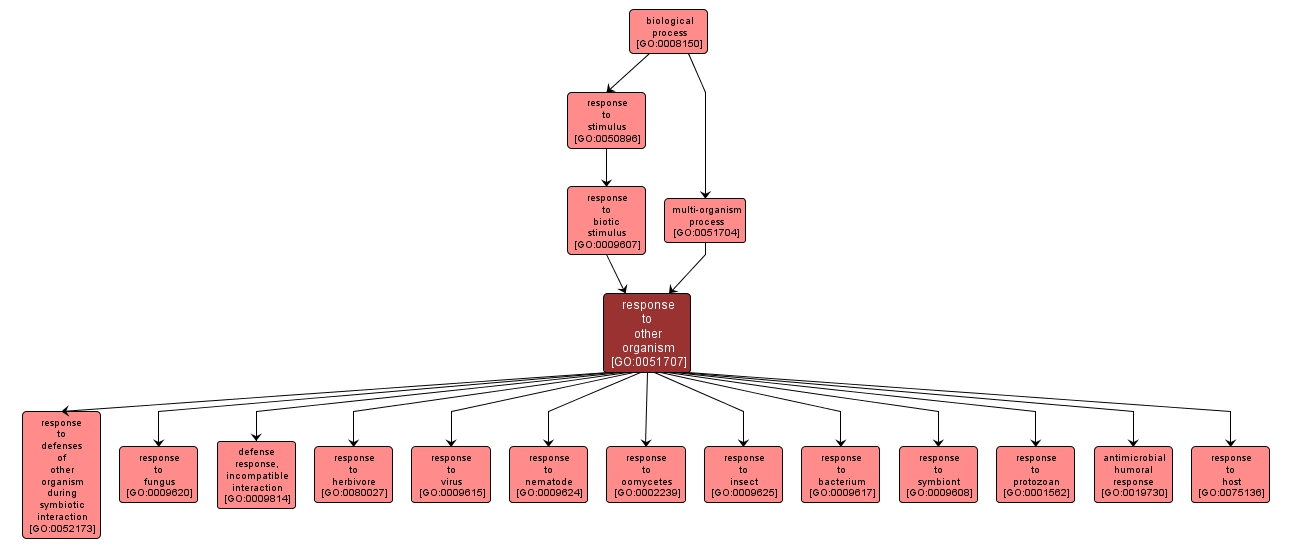GO TERM SUMMARY
|
| Name: |
response to other organism |
| Acc: |
GO:0051707 |
| Aspect: |
Biological Process |
| Desc: |
A change in state or activity of a cell or an organism (in terms of movement, secretion, enzyme production, gene expression, etc.) as a result of a stimulus from another living organism. |
| Synonyms:
|
|

|
INTERACTIVE GO GRAPH
|














